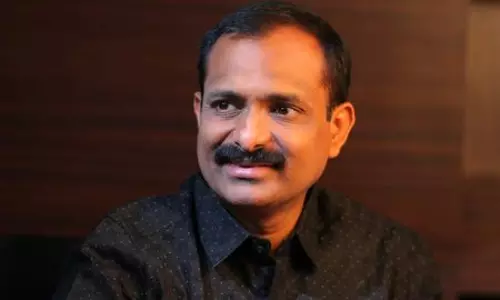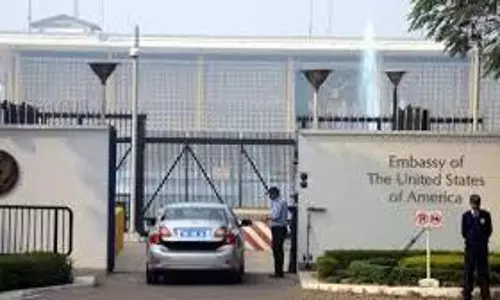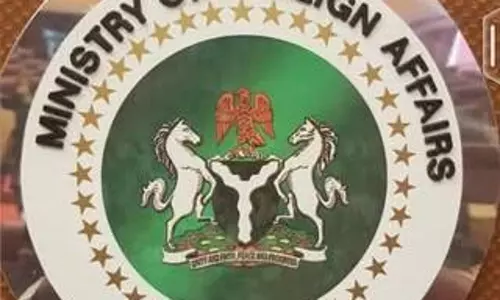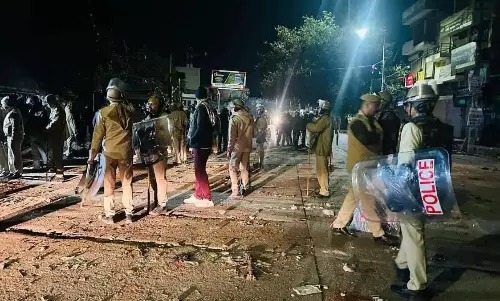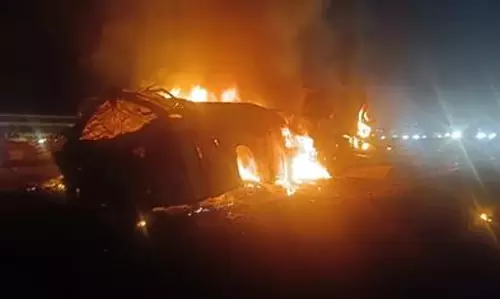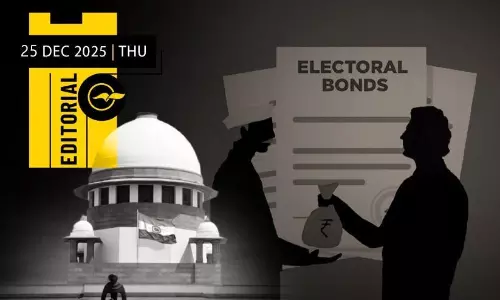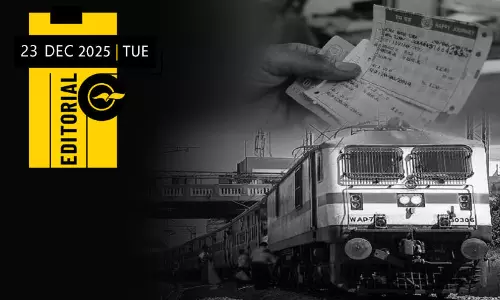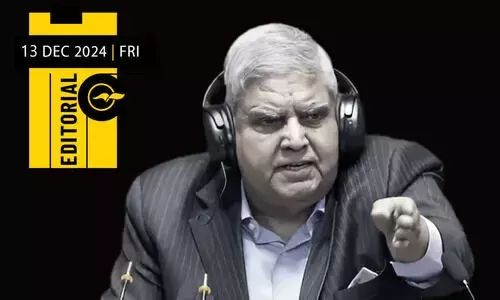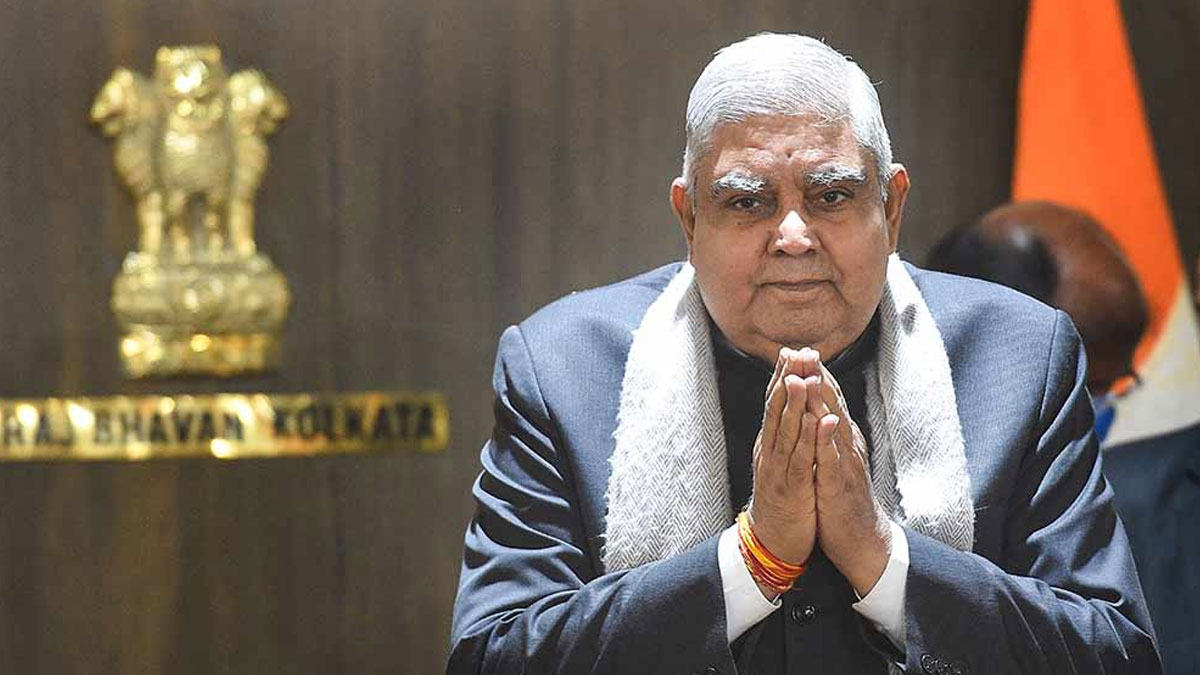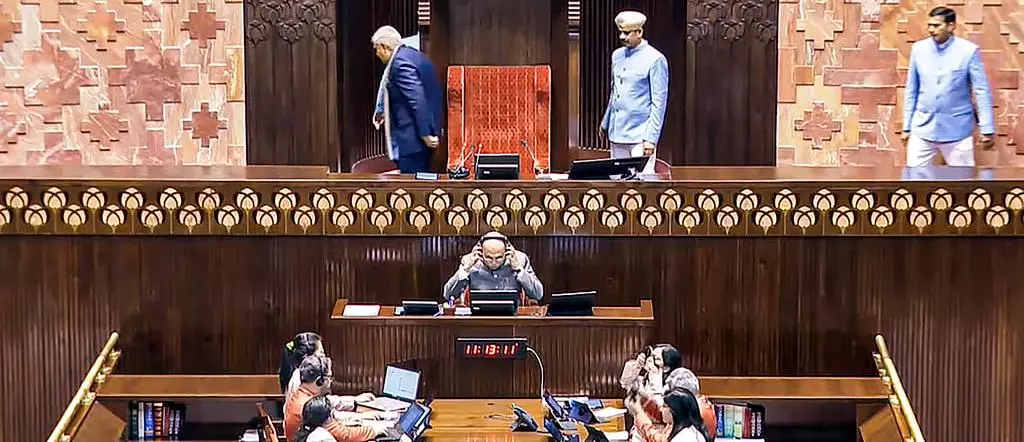
The Chairman who disrupts the House
text_fieldsHow unfair it is for a referee, who is responsible for ensuring that the rules and sportsmanship are followed in a match between two teams, to play for one of them! What if he encourages his favourite team members to commit fouls and even goes so far as to knock down the members of the team he doesn't like? What would be the fate of the country if such actions, which even the worst referees hesitate to do on the field, were to be performed in the houses of the people's representatives? In the Parliament of the world's largest democracy, actions the Opposition members in the upper House alleged to have been taken, are being carried out with the consent of the Chairman, which is even more unfortunate. The opposition members have moved a no-confidence motion against the Rajya Sabha Chairman, the Vice President of the country, accusing him of acting with bias and vindictiveness, damaging the country's reputation. While no-confidence motions are nothing new in the country, this is the first time in the history of independent India that such a motion has been moved against the Rajya Sabha Chairman. A notice signed by around sixty members of Parliament demanding his removal alleges that the positions Jagdeep Dhankhar has taken since assuming the position in August 2022 are highly biased.
Dhankhar, who constantly interrupts opposition MPs whenever they rise to speak, did not even allow the opposition leader to ask for time to explain the truth behind the false statements made by Prime Minister Narendra Modi and the ruling party's leader in the House, JP Nadda. The allegations made by the opposition are unlikely to be denied by anyone who views Indian politics other than through the lens of the Sangh Parivar. This is also the reason why representatives of various parties in the INDIA bloc came forward to sign the no-confidence notice despite the lack of consensus even on basic issues. The motion is likely to be rejected on the technical ground that 14 days' notice was not given. According to experts familiar with parliamentary procedures, if it is not possible in this session, it can be discussed in the next session. Even if the no-confidence motion proceedings go ahead, the BJP-led NDA has a majority in the Rajya Sabha as well, so it is unlikely to succeed. However, the opposition's strategy behind moving forward with the action is to symbolically inform the country about this protest. Despite the presence of many aspiring vice-presidents pampered by the Sangh Parivar, Dhankhar was the NDA candidate for the 14th vice-presidential post of the country, surpassing all of them. He, who was a Congress member who spoke out strongly against the RSS's anti-democratic policies in the Rajasthan Legislative Assembly in the mid-nineties, later joined the saffron party by providing legal advice to Ram Janmabhoomi movement leaders and Sangh Parivar members involved in terrorism cases. In his haste to show loyalty to the organization that gave him this coveted position and could help him reach even higher heights, he is trampling on his responsibility towards the country.
Even his predecessor and undiluted Swayamsevak M Venkaiah Naidu would not have misused the platforms that come his way to praise the RSS and extol the greatness of the Modi government like this. Modi devotees have the right to believe and propagate that India became a democracy after 2014, even if there is no truth in it. But that is not desirable for the honourable Vice President. He should go to the Parliament Library at his leisure and look through the records of the interventions made by his predecessors. Or, he should watch the video footage of Dr KR Narayanan and Dr Hamid Ansari controlling the House. Even during the periods when the ruling party had a huge majority in the Lok Sabha, it was not easy to pass bills and laws in a dictatorial manner thanks to the vigilance of the opposition members in the Rajya Sabha. Each bill and its provisions were discussed in detail. The voices of almost every section of the people of the country were heard in Parliament. The mature stances adopted by the Rajya Sabha chairmen from time to time, upholding the dignity of the House and its position, strengthened that process of reinforcing democracy. How much better it would have been if the Vice President had at least realized that the greatness of democracy is not determined by the size of the Parliament building.




